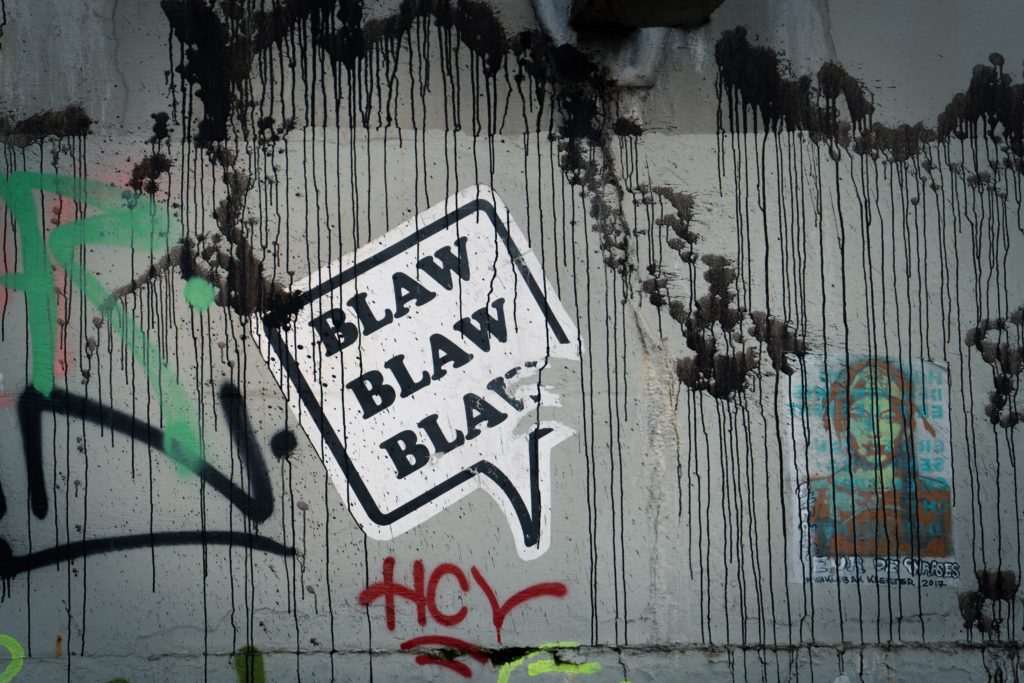So what might Klaus Schwab, the Great Reset and Q Anon conspiracists have to do with a remote independent programmer lets say, trying to earn a buck from a fifth-floor apartment somewhere in downtown Singapore?
At first sight, not a whole lot - but look again and you might be surprised.
It would be totally understandable if we all just left the lofty global narrative to those more invested and interested in its debate, put our eyes down and cracked on with our working day, and doing it to the best of our ability.
But not even the most low-key independent contractor or far-flung organisations are immune to the noise, disruption and market pressures that the trajectory of the Great Resets global narrative creates.
Table of Content
Table of Content
Table of Content
Why do we care?
We think Work For Impacts reasons to be interested in such stratospheric stuff like the Great Reset are pretty obvious but just in case they arent, well reiterate. We sit at the intersection between those higher-order global labour trendlines and the individual needs and desires of independent talent working remotely from within a number of economies. This puts us at the very intersection where a new social contract would or should be forged - hence our interest in this. So lets dive in.

Something is obviously wrong out there? No one can dispute that. Between the Great Resignation and Quiet Quitting, the tectonic plates on which the worker-employer relationships stand are shifting.
In advanced western countries, it is fair to say that the social contract between many employers and employees is, if not well and truly broken, degrading at speed and has been for some time. The shared value and mutual benefit of a sustained and respectful social contract between those employers and the people they employ is clear to see:
Evidence demonstrates that perceived organizational support when employees believe a company has their backcreates a reduction in turnover and burnout and improves performance,
But the legacy of staggering C Suite self-interest, the culture of fat-cat bonusing, collapsing or criminally eviscerated pension schemes, mass redundancies, neutered unions, degradation of employee protections, exponential expansion of gig economy abuses, and the creeping death of pastoral in-community support seems to have blinded all to that. Add to the rubble of that relationship the impact of pandemic PTSD on workers and managers alike and the issue increases exponentially. One of the greatest problems is a lack of awareness of the depth of the problem.
In the 2021 State of Workplace Empathy report, 96% of CEOs say their organizations were empathetic. But only 72% of employees say the same about their companies.
Somebody needed to confront these truths and many did. But in this piece, the somebodies we are talking about have been made both very significant, and highly visible by their annual gathering in the snowy climes of Davos.
We recommend taking a look at this article
Get a Free Quote for Your Global Team
FreeProof phase
24/7 support
Free 360-degree recruitment
Book a discovery call
We respect your data. By submitting this form, you agree that we will contact you in relation to our products and services, in accordance with our Privacy policy.
Reset What?
Well, everything it seems. The Great Reset is a very high-flown concept of a better world judging by its authors sell. Klaus Schwab CEO of the World Economic Forum presents three core components of the Great Reset. Stakeholder Capitalism, resilient equitable and sustainable investment and harnessing the innovations of the Fourth Industrial Revolution [tech connectivity, AI and machine intelligence to you and I]
The Great Reset was presented as a post-covid recovery plan that also sought to change the rules and nature of the old Industrial 3.0 world, ushering in a new era unsurprisingly called INDUSTRY 4.0.
Now, a number of roads led to the particular Rome of the Great Reset. In an article in The Economist, Mark Carney, former Governor of the Bank of England, said that in a post-COVID world "stakeholder capitalism" will be tested as "companies will be judged by "what they did during the war [the war against covid and the Russia-Saudi Oil War]", how they treated their employees, suppliers and customers, by who shared and who hoarded. The "gulf between what markets value and what people value" will close. This new hierarchy of values will call for a reset
Basically, the gathering commentators and economic think-tankers decided that COVID-19 offers an opportunity to "reset and reshape" the world in a way that is more aligned with the United Nations 2030 Sustainable Development Goals - including a resetting of labour markets, as the stampede to remote working speeds up the process of the "future of work".

WORK 4.0
So a quick scratch at the surface reveals that The Great Reset carries within it a conceptual framework for that reset called WORK 4.0 - a "vision for quality jobs in the digital age" and within that lies the idea of a new social contract. At one of the Great Reset Dialogues, John Kerry and other members of a WEF dialogue discussed rebuilding the "social contract" in a post-COVID world
So we are clear, WORK 4.0 is apparently characterized by a high degree of integration and cooperation, the use of digital technologies (e.g. the internet), and a rise in flexible work arrangements. All good so far? Great. But, wait a minute. At the end of its Wikipedia piece, they allude to some [people] [speculating] that this push to automate is less a technological edict and more a hidden agenda by corporations to replace labourers with Industrial automation.
Bingo. We knew there would be someone somewhere cooking up a conspiracy.
With the ingredients of the global influential elite, potential marginalisation of ordinary working folks, massive financial gains, and a greater deregulated role of private corporations in global politics and human agency, how could there not be.
So, back to that programmer remotely working on earning a buck, and the role of the some in their and our working world.

Some who?
Firstly, who are these some the Wikipedia piece alludes to? And why should we care about them? Well, the complexity of the theories of the Great Reset and all of its spider-web of interconnected, interrelated influences causes and effects may be well beyond the interest or sight line of our programmer 5 flights up but the alt conspiracists posts, memes, shock vlogs, podcasts and highly suspect slide presentations wont be.
Tik-Tok, Reddit and various other subterranean social networks are teeming with them. Even if you dont go anywhere near the likes of Gab, MeWe Telegram and other pure alt-right sites, their content will get to you through the algorithm someway, somehow.
And boy these people are good at propagandising their beliefs in some quite quietly terrifying ways.
Many of the some believe that by buying into that Great Reset Work 4.0 narrative, you are buying into a GLOBAL conspiracy:
Among the most popular posts are baseless statements that the Great Reset is a strategic part of a grand conspiracy by the global elite, who somehow planned and managed the Covid-19 pandemic.
[Please note the above quote is from a leading BBC article which would be immediately shouted down by the conspiracists as they see the BBC as a haven for exactly the kind of hidden-agenda elite that are causing all of the problems in the first place.]
The claim of some is that Klaus Schwab is peddling a Marxist-socialist agenda hidden inside the trojan horse of an ostensibly benign new sustainable dawn. They believe that the Great Reset is simply Marxist propaganda seeking to keep regurgitating and pushing relentlessly failing leftist policies in effect, economic materialist agitation and class antagonism. This claim aims to put a very large black [or should that be red perhaps] mark against the Great Resets supposedly positive and impactful global aspirations.
Is it all just conspiratorial paranoias and regurgitated White Genocide George Soros is Satan stuff in the social networks and on influencer channels?
Not all of it. Some have rightfully questioned some of the blind spots' in the engineering of the plan and its ambition the kind of things the conspiracists leap upon.
For example, one journalist points to the real threat being the Great Resets role in the UN, and the further encroachment on human liberties by global corporations intent on using their role in the Great Reset to further their own interests:
the controversial strategic partnership agreement the United Nations (UN) signed with the WEF in 2019. Harris Gleckman describes this as a move to turn the UN into a public-private partnership, creating a special place for corporations inside the UN.
Still Waiting?
Given the degree and nature of some of these paranoiac backlashes, and the need for greater and more forensic examination of the Great Reset and its potential influence and impact, the idea of a New Social Contract appearing any time soon in a remote meeting near you is very unlikely.
Whats more, the economic post-pandemic shocks still reverberating around the globe, cost of living crunches, energy crises, spiralling inflation and a general economic malaise everywhere, are creating downward pressure on the Governance and HR budgets of every size of the company. In that environment, any social contract that requires disproportionate investment at the front end just wont happen. There is already evidence that the CFOs and Accounts departments everywhere are pulling up the drawbridge on any investment seen as extraneous to survival in the face of more predicted economic downturns.
To say all of this creates a lot of turbulence, noise and distraction around what should be a quite simple idea the resetting of the social contract between employers and the people they employ, whether on a full or part-time basis is somewhat of an understatement. The challenges are all too clear. But what solutions can be found?
Why Us Why Now?
From Work for Impacts point of view, we believe it is not good enough to wait for all of these conflicting forces to land somewhere good.
In founding Work for Impact, Geoff Hucker went early if you will - using the hyper-connectivity of the cloud age and a smart solutions platform [harnessing the innovations of the Fourth Industrial Age in Schwabs words] to, in effect, draw up a new social contract of his own, between purpose- and mission-minded organisations and the kind of independent talent seeking to make a positive impact in the world through their work.
He set a new social contract at the heart of WFI one founded on three core beliefs.
- A belief that fair opportunity for employment should be available to all regardless of background, gender, ethnicity or economic or social status.
- A belief that companies seeking to hire talent from the global talent pool have an increasing responsibility to ensure that those people are being hired in a fair, transparent and ethical way.
- A belief that, ultimately, we need to create and invest in the foundations of a world of work guided by the principles of decency, fairness, respect and transparency, regardless of whether global trends and movements dictate otherwise.
Applying the Rule
Does that new social contract get in the way of Work for Impacts simple and singular proposition of finding the right talent for the task, job or project in hand? No.
Does it complicate what should otherwise be an efficient, economical and seamless experience for both the organisation and the talent they are seeking to hire? No.
In the increasingly dynamic, impactful and ethical Talent3 world we find ourselves in, Geoffs New Social Contract operates somewhat like an intel inside the Work for Impact platform, super-processing all of that purposeful energy into the systems, processes and tools required to achieve one pure goal - engineering and evolving the smartest future-facing independent talent platform to be found anywhere in the world.
In closing
So Klaus, QAnon, Great Resets and Great Resignations aside, until the rare and the few decide and fix upon an actionable consensual new social contract for this world of Work 4.0, at Work for Impact well just keep applying our own.
About Work for Impact
Work for Impact is a platform that aims to connect skilled independent contractors with organizations that are built upon ethical business practices. Learn more at workforimpact.com
